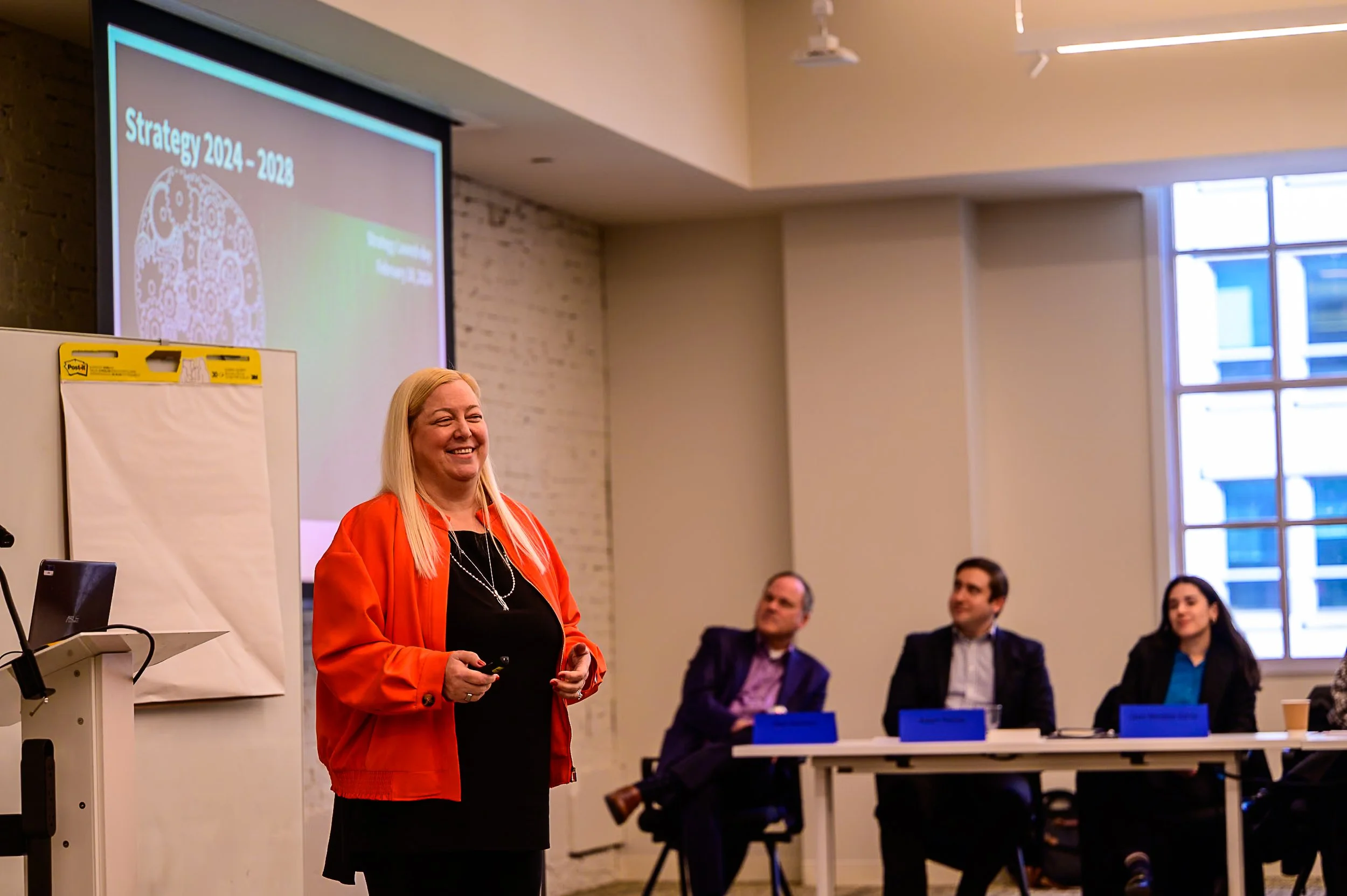
Empowering Our Consultants to Learn and Innovate for Client Mission Results
I joined Arc Aspicio more than eight years ago to learn and grow as a consultant. Through professional development opportunities, I have strengthened relationships with clients and colleagues, built my leadership and consulting skills, and now lead and mentor others by supporting their career goals and aspirations.
“Being a great consultant means that you are a great, lifelong learner. It is only in learning and applying what you learn that you can implement innovation and change for your clients.” We have a strong learning culture, investing significantly in our consultants’ learning and growth to support our culture of innovation and action. To provide our clients with outstanding services and results and to help our people achieve their aspirations, we embrace our consultants’ growth mindset by offering professional development opportunities to increase and expand their skills.
Our Integrated Professional Development (IPD) Program provides a continuous learning environment that combines project-based and formal training to help consultants develop hard and soft skills and leadership abilities and provide high-quality services in dynamic and complex environments to achieve exceptional project and mission results.
Professional development opportunities align with either the Consulting or Specialty career track. Arc Aspicio provides a flexible career model that supports long-term engagement, enables growth, inspires learning, and allows for career options. Consulting track employees require entrepreneurial, consulting, and management skills. Specialty track employees focus on developing skills in their specialty to be thought leaders, allowing them to develop capabilities that contribute to project delivery.
Consulting and Specialty track employees participate in many developmental opportunities, including hands-on and experiential learning through All Hands and Learning Days, peer groups, external training, and case studies. We also have robust mentoring, executive coaching, knowledge-sharing, and career development programs that foster personal and professional development.
Among these programs, peer groups are the foundation of our IPD Program, where consultants focus on personal and professional development as part of a select group of their peers. Using formal training, role playing, coaching, and special projects, our consultants build connections and develop consulting and leadership skills in an environment where participants can learn and take risks.
Often, our scenarios use real-world homeland security mission challenges so that the practice and learning help our teams learn the homeland security mission areas. Using real-world challenges also may generate new and innovative ideas that we can share with current and future clients.
Our clients’ success hinges on our consultants’ passion for the mission, leadership skills, and entrepreneurial spirit. We provide timely and relevant professional development opportunities so our consultants build and strengthen their consulting skills, achieve their personal goals, and address client needs.





















